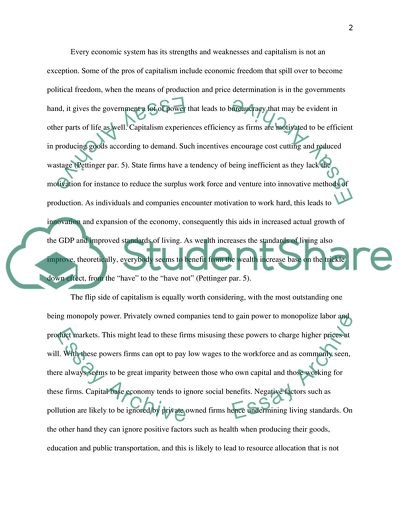Cite this document
(“Advantages and Disadvantages of Capitalism and Socialism Research Paper”, n.d.)
Advantages and Disadvantages of Capitalism and Socialism Research Paper. Retrieved from https://studentshare.org/social-science/1641879-advantages-and-disadvantages-of-capitalism-and-socialism
Advantages and Disadvantages of Capitalism and Socialism Research Paper. Retrieved from https://studentshare.org/social-science/1641879-advantages-and-disadvantages-of-capitalism-and-socialism
(Advantages and Disadvantages of Capitalism and Socialism Research Paper)
Advantages and Disadvantages of Capitalism and Socialism Research Paper. https://studentshare.org/social-science/1641879-advantages-and-disadvantages-of-capitalism-and-socialism.
Advantages and Disadvantages of Capitalism and Socialism Research Paper. https://studentshare.org/social-science/1641879-advantages-and-disadvantages-of-capitalism-and-socialism.
“Advantages and Disadvantages of Capitalism and Socialism Research Paper”, n.d. https://studentshare.org/social-science/1641879-advantages-and-disadvantages-of-capitalism-and-socialism.


